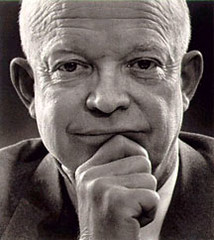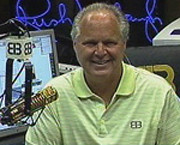“Thousands of active troops and veterans were subjected to Mr. Limbaugh’s unpatriotic and indefensible comments on your broadcast,” Senate Majority Leader Harry Reid (D-Nev.) said in his letter to Clear Channel Chief Executive Mark Mays, which mirrors his statements on the Senate floor. — The Hill.
Yet, as far as I know, the only people subjected to Rush Limbaugh are people who listen to his show. But, nonetheless, so it begins. Tax dollars, yours and mine, are being spent this week on letters and speeches delivered in Congress to denounce, discredit, and censor. We might as well enjoy the circus, provided the price is nothing more than tax dollars and not free speech or the right to address grievances with our government.
“Well, I don’t know. Maybe he [Rush] was just high on his drugs again,” said Sen. Tom Harkin, (D-Iowa) as reported by Michelle Malkin. “I don’t know whether he was or not. If so, he ought to let us know. But that shouldn’t be an excuse.”
Taking time to record that comment into our Congressional records is so much more important than “providing assistance for poor and elderly families to afford to heat and cool their homes, and the need to continue our commitment to improve education for our nation's children."
This week is banned booked week. It’s sponsored by the American Library Association, American Booksellers Association, the American Booksellers Foundation for Free Expression, the Association of American Publishers, the American Society of Journalists and Authors and the National Association of College Stores.
Hundreds of books are challenged every year. And those who aim to strike them from the shelf often use statements that sound dangerously similar to those of Sen. Reid’s … “This comment was so beyond the pale of decency that it cannot be left alone."
Indecent. Immoral. Impudent.
What are these books? You know the ones: The Harry Potter series by J.K. Rowling, “The Chocolate War” by Robert Cormier, the Alice series by Phyllis Reynolds, “Of Mice and Men” by John Steinbeck, and “I Know Why the Caged Bird Sings” by Maya Angelou.
All of them round out the top five most challenged books since 2000, but Judy Blume is still the most challenged author. In fact, there were more than 3,000 attempts to remove books between 2000-2005.
You might note that these challenges are not ancient history. On the contrary, they are alive and well today. Challenges to our civil liberties that unnoticed would silence our people. Challenges that aim at radio talk show hosts for talking about what other people already knew. Challenges that convinced me to lend some of my Sunday to The Gylon Jackson Show to discuss a few free speech concepts:
• Don’t allow the ignorance of others to have power over you
• The abuse dies in a day, but the rule of law lasts forever
• We have to protect free speech, even speech we find offensive
• The remedy for the abuse of free speech is more free speech
• Most people want free speech for “them,” but not other people
• Critical speech gives you an opportunity to gauge issue temperature
• Specific words that offend people tend to change over time
Today, given the controversy surrounding Limbaugh, we might remember those points. Or perhaps, maybe it would be best to remember the words of Dwight David Eisenhower …
”And we have got to fight it with something better, not try to conceal the thinking of our own people. They are part of America. And even if they think ideas that are contrary to ours, their right to say them, their right to record them, and their right to have them at places where they're accessible to others is unquestioned, or it's not America.” — Eisenhower

Yet, as far as I know, the only people subjected to Rush Limbaugh are people who listen to his show. But, nonetheless, so it begins. Tax dollars, yours and mine, are being spent this week on letters and speeches delivered in Congress to denounce, discredit, and censor. We might as well enjoy the circus, provided the price is nothing more than tax dollars and not free speech or the right to address grievances with our government.
“Well, I don’t know. Maybe he [Rush] was just high on his drugs again,” said Sen. Tom Harkin, (D-Iowa) as reported by Michelle Malkin. “I don’t know whether he was or not. If so, he ought to let us know. But that shouldn’t be an excuse.”
Taking time to record that comment into our Congressional records is so much more important than “providing assistance for poor and elderly families to afford to heat and cool their homes, and the need to continue our commitment to improve education for our nation's children."
This week is banned booked week. It’s sponsored by the American Library Association, American Booksellers Association, the American Booksellers Foundation for Free Expression, the Association of American Publishers, the American Society of Journalists and Authors and the National Association of College Stores.
Hundreds of books are challenged every year. And those who aim to strike them from the shelf often use statements that sound dangerously similar to those of Sen. Reid’s … “This comment was so beyond the pale of decency that it cannot be left alone."
Indecent. Immoral. Impudent.
What are these books? You know the ones: The Harry Potter series by J.K. Rowling, “The Chocolate War” by Robert Cormier, the Alice series by Phyllis Reynolds, “Of Mice and Men” by John Steinbeck, and “I Know Why the Caged Bird Sings” by Maya Angelou.
All of them round out the top five most challenged books since 2000, but Judy Blume is still the most challenged author. In fact, there were more than 3,000 attempts to remove books between 2000-2005.
You might note that these challenges are not ancient history. On the contrary, they are alive and well today. Challenges to our civil liberties that unnoticed would silence our people. Challenges that aim at radio talk show hosts for talking about what other people already knew. Challenges that convinced me to lend some of my Sunday to The Gylon Jackson Show to discuss a few free speech concepts:
• Don’t allow the ignorance of others to have power over you
• The abuse dies in a day, but the rule of law lasts forever
• We have to protect free speech, even speech we find offensive
• The remedy for the abuse of free speech is more free speech
• Most people want free speech for “them,” but not other people
• Critical speech gives you an opportunity to gauge issue temperature
• Specific words that offend people tend to change over time
Today, given the controversy surrounding Limbaugh, we might remember those points. Or perhaps, maybe it would be best to remember the words of Dwight David Eisenhower …
”And we have got to fight it with something better, not try to conceal the thinking of our own people. They are part of America. And even if they think ideas that are contrary to ours, their right to say them, their right to record them, and their right to have them at places where they're accessible to others is unquestioned, or it's not America.” — Eisenhower















